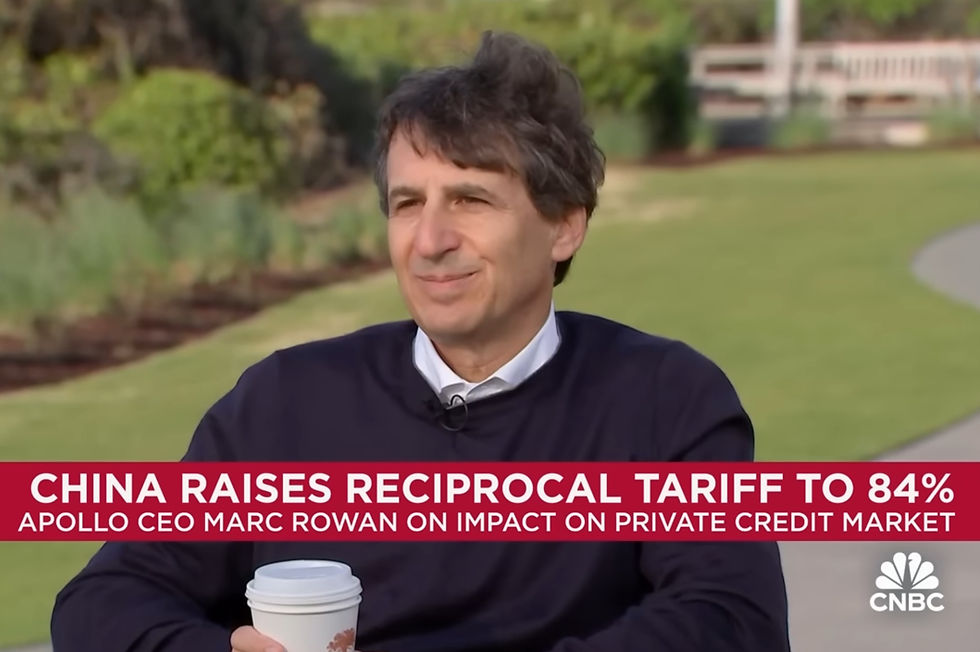Private Credit Surge Reshapes Corporate Borrowing Amid Tariff Tensions
- May 9, 2025
- 2 min read
Updated: May 10, 2025
What's New: Apollo Global Management's May 2025 report by Chief Economist Torsten Slok reveals private credit has grown substantially, now representing 6.6% of U.S. debt markets—nearly quadrupling from 1.7% in 2003—as banks continue to retreat from corporate lending.
Why It Matters: This structural shift creates significant opportunity for alternative lenders while simultaneously exposing borrowers to new risks as recent tariffs trigger economic uncertainty and potential stagflation, disrupting capital markets and supply chains.
Big Picture Drivers:
Structure: 87% of U.S. companies with revenues exceeding $100 million are private, representing a massive addressable market largely underserved by traditional lenders.
Liquidity: Dealer balance sheets have remained flat while the corporate bond market has tripled in size, creating execution challenges in public markets.
Quality: Corporate credit ratings show long-term deterioration with fewer AAA/AA-rated companies and concentration growing in BBB-rated debt.
Volatility: Recent "Liberation Day" tariffs have triggered supply chain disruptions with a visible path to recession by summer 2025.
Inflation: 76% of manufacturing firms plan to pass tariff-related costs directly to consumers, feeding into stagflationary pressures.
By The Numbers:
Private capital AUM has grown by $10 trillion since 2013
S&P 500 companies represent just 18% of total U.S. employment
S&P 500 capital expenditures account for only 15% of total U.S. capex
37% of U.S. imports from China are intermediate goods used in domestic production
Foreign investors hold 30% of total U.S. corporate credit
Key Trends to Watch:
Transaction activity will likely remain subdued as loan issuance, IPOs, and M&A volumes historically decline during periods of elevated policy uncertainty.
Supply chain realignment is accelerating as companies seek new domestic suppliers and move purchases ahead of tariff implementation.
Credit market disconnects between economic policy uncertainty and investment-grade spreads suggest markets may be underpricing risks.
Fiscal concerns and the "Mar-A-Lago Accord" represent significant wildcards for corporate finance conditions going forward.
The Wrap: As banks continue their structural retreat from corporate lending, private credit providers face both opportunity and challenge—positioned to capture market share in a growing private company ecosystem but navigating complex cyclical crosscurrents from tariffs, stagflation, and policy uncertainty.



Comments